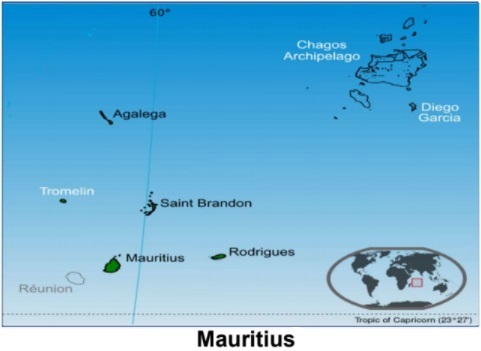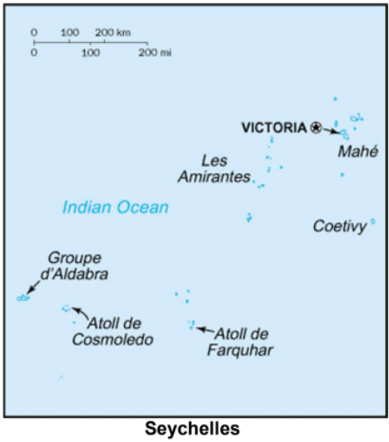The COVID-19 Island Insights Series is an initiative led by the Strathclyde Centre for Environmental Law & Governance (SCELG) and the Institute of Island Studies (IIS) at the University of Prince Edward Island (UPEI) in collaboration with Island Innovation. The series aims to bring together critical assessments of how specific islands around the world have performed during the COVID-19 pandemic and the extent to which their recovery plans are able to promote long term resilience and sustainability.
Every two weeks, Island Innovation will release COVID-19 Island Insights Series from two different islands. This week we are in the Indian Ocean and focusing on Mauritius and Seychelles. The piece on Mauritius is authored by Verena Tandrayen Ragoobur and the piece on Seychelles by Malshini Senaratne.
This edition’s insights come from two island nations in the Indian Ocean: Mauritius and Seychelles.
Both the Seychelles and Mauritius took swift actions to impose lockdown measures and travel restrictions and have kept the virus well under control throughout the pandemic. Mauritius took particularly strict action in some instances in the early stages, including short periods of even supermarket closures and severe penalties for spreading misinformation. However, the ongoing economic implications for both island nations of global travel restrictions and economic slowdown has have shone a light on some of their most significant vulnerabilities.
In Seychelles, the impact on its two key industry sectors of tourism and fisheries has underlined the precariousness of an undiversified economy. Meanwhile in Mauritius, the country’s dependence on imported fossil fuels has highlighted energy insecurity issues. In the short-term, efforts are primarily being concentrated on restarting the countries’ economies, with Seychelles, in particular, being quick to begin implementing its vaccination program and reopen its borders in tandem. But both nations are also signalling longer-term commitments to the pursuit of more resilient and sustainable economic pathways based on lessons learned from the pandemic. In Seychelles, this could include taking forward policy measures to grow its blue economy in a more holistic way that better considers knowledge-based capital. While in Mauritius, this will encompass enhanced support and promotion of sustainable tourism and investment in cleaner, more reliable means of electricity production.
The COVID-19 Island Insights Series will lead to a series of “thematic primers” aimed at assisting policy makers and wider island related stakeholders to encourage islands to move to a more resilient and sustainable future.
List of islands covered by the COVID-19 Island Insights Series (list subject to change):
- Åland Islands (Finland)
- Barbados
- Croatian Islands
- Egadi Islands (Italy)
- Grenada
- Guam (USA)
- Hawai’i (USA)
- Iceland
- Jamaica
- Lesvos (Greece)
- Malta
- Mauritius
- New Zealand
- Newfoundland (Canada)
- Okinawa (Japan)
- Prince Edward Island (Canada)
- Saint Helena (UK)
- Seychelles
- Shetland Islands, Scotland (UK)
- Solomon Islands
- Trinidad & Tobago
Click here to view the Strathclyde Centre for Environmental Law & Governance (SCELG) website.
Click here to view the University of Prince Edward Island (UPEI) website.
Click here to view the University of Strathclyde website.

Island Innovation is a social enterprise and digital media company at the intersection of sustainable development and communications, offering specialised services across various sectors. We bring together the private sector, government, utilities, NGOs and universities to advance innovation for sustainability and prosperity in islands worldwide.



















